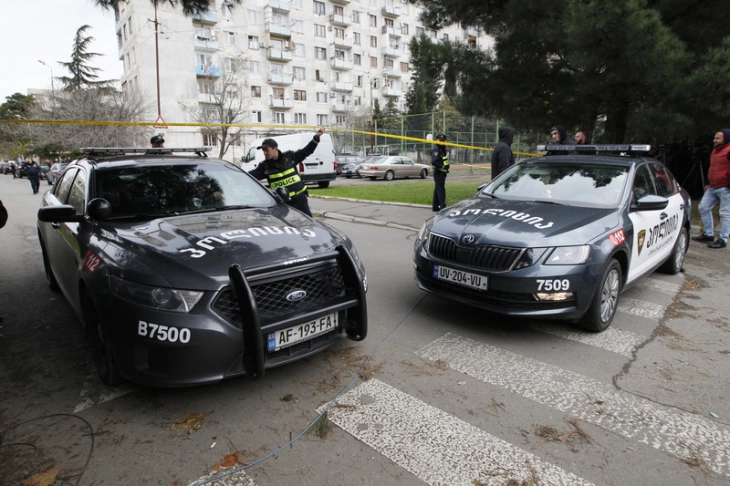Police in Georgia have apprehended 63 individuals involved in large-scale demonstrations denouncing the government, as stated by Alexander Darakhvelidze, the South Caucasus republic’s deputy interior minister, on Wednesday in the capital, Tbilisi.
Throughout the night, security forces deployed tear gas, water cannons, and batons against the tens of thousands of protestors.
The demonstration, ongoing for weeks, has been aimed at contesting the government’s proposed measures to counter alleged foreign influence on Georgian civil society.
The parliamentary discussion on this legislation, reminiscent of Russian laws, is slated to proceed in the former Soviet republic, now a candidate for European Union membership, on Wednesday.
Among those detained was Levan Khabeishvili, leader of the largest opposition party, the United National Movement (UNM). Khabeishvili shared a photo displaying his bruised and bloodied face, alleging mistreatment by the police.
Security forces had used force against protestors on Tuesday evening, dispersing them from the parliament premises. The situation only began to ease during the night, with new protests scheduled for Wednesday.
The crux of contention revolves around a law, akin to Russia’s, which designates non-governmental organizations (NGOs) receiving foreign funds as foreign entities. Numerous initiatives promoting democracy rely on funding from EU states or the United States.
The ruling Georgian Dream party contends that the law aims to enhance transparency. However, critics anticipate its abuse akin to Moscow-style legislation, potentially curbing funding and targeting pro-Western entities.
Ahead of parliamentary elections in the fall, the Georgian Dream party, in power since 2012, is adopting an increasingly authoritarian stance.
Pro-European demonstrators fear that this trajectory jeopardizes the country’s aspirations for EU accession.





Comments are closed for this post.